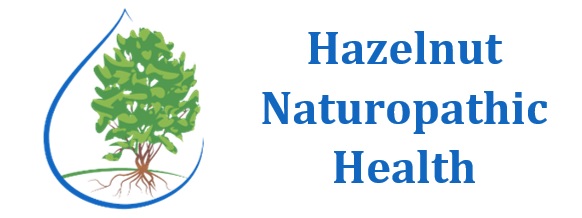
Natural Stress Solutions During Stressful Times
How Naturopathic Medicine Can Improve Stress Management
In light of the COVID-19 pandemic, stress levels have skyrocketed. The American Psychological Association publishes a yearly report about American stress levels. After an April-May 2020 poll, they found a substantial rise in average stress experienced by US citizens since the report began in 2007 [11]. This has driven consumers to find natural stress solutions during stressful times like COVID-19.
What is Stress?
Merriam-Webster defines stress as “a physical, chemical, or emotional factor that causes bodily or mental tension and may be a factor in disease causation [12].” Yet for those who have had stress overwhelm them, it means so much more. People who experience stress respond in different ways physically, mentally, and emotionally. For one person, going to a job interview is an exciting challenge and for another, the same interview is trauma-inducing.
When the body undergoes stress, a cascade of physiologic responses occurs. The sympathetic nervous system (fight or flight) is activated which signals the adrenal gland to release hormones to prime the body to respond immediately to a perceived threat or stressor. First epinephrine is released, causing short-term reactions including increasing heart rate, dilating the eyes, pumping more blood to the muscles, etc. This allows a person to get away or fight off the stressor. If the source of the stress remains, cortisol follows, keeping the body in a state of high alert. This state allows the person to react faster to the stressor in the future.
In the modern age, this adaptation can be harmful because worrying about paying bills is treated the same as never escaping a bear. Long-term stress has been found to negatively impact health by lowering the effectiveness of the immune system and increasing the risk of a cardiac event. If someone has low resilience to stressors, they may have an increased chance of developing mental disorders [1] [10] [3]. A common example is a chronic lack of sleep. Very few American adults get the recommended 7-8 hours of sleep a night, and over time, this alters how well immune cells work [1]. This makes someone more susceptible to infection than they would normally be. Additionally, there is an impact on general hormone balance, digestion, cognitive function, etc.
Try Some Natural Stress Solutions...
Obviously removing the stressor will help, but in a lot of instances, this is just not possible. If a sudden stress occurs, research indicates walking outdoors can help. A recent review found being outside (walking, exercising, or gardening) demonstrated a measurable reduction in heart rate and blood pressure [7]. Additionally, research has also found moderate exercise can be helpful, not only physically, but mentally as well. Physically it promotes health and well-being which raises stress coping mechanisms. Mentally it been found to promote the growth of new neurons, increasing the ability to learn. It also has a balancing effect on stress hormones [2].
Another tool useful to help with stress management is mindfulness. It is used to increase awareness of mental, physical, and emotional health as well as one’s surroundings. By focusing internally with an open, non-judgmental attitude, it can help bring life more into perspective, reducing the body’s reaction to stress. One method is called Mindfulness-Based Stress Reduction (MBSR) training which was originally made to help those with chronic pain. It has shown promise in helping reduce stress, especially in work environments, though more research is needed. [6]
What Can Naturopathic Medicine Do For You?
Overall, there are many different natural therapies which can help manage and reduce the physical, mental, and emotional impact stress can cause. Consider the simple ability of water to improve health. Water therapies have been found to be helpful with chronic pain, inflammation, and stress-induced pathologies [9]. Even something as simple as taking a warm bath can decrease the impact stress causes on the body. Adding whole herbs such as lavender (Lavandula angustifolia) flowers and/or Epsom salts can increase the relaxing benefits of a warm bath.
Depending on what is most manageable, there are other supplement options which can prove helpful. Fish oil was found to help regulate cortisol, reducing it to a more manageable level in one case. An additional option is L-theanine, an amino acid derived from the tea plant. It was shown to work on the brain, inducing a sensation of relaxation. [5]
Improving the body’s ability to adapt and cope with stressors in another way of dealing with stress. Herbs contain hundreds of different compounds that work together to help restore balance to the body’s systems in many ways. There are several herbs which, through research, have been classified as “adaptogens” which specifically help overcome stress. One example is Rhodiola (Rhodiola rosea), and it was found to help with physical and mental fatigue, stress-induced chronic fatigue, and depression. Another adaptogen called Schisandra (Schisandra chinensis) was found to also be helpful with fatigue as well. Above all, adaptogens have been found to have a high safety profile when used properly including few side effects and being nonaddictive. [8] [9]
Your Naturopathic Doctor will tailor recommendations specifically to support you, your life, and the source of your stress. Schedule your free 15-minute health consultation with Dr. Blandford today.
Citations:
[1] Dragoş, D., & Tănăsescu, M. D. (2010). The effect of stress on the defense systems. Journal of medicine and life, 3(1), 10–18.
[2] Esch, T., & Stefano, G. B. (2010). Endogenous reward mechanisms and their importance in stress reduction, exercise and the brain. Archives of medical science : AMS, 6(3), 447–455. https://doi.org/10.5114/aoms.2010.14269
[3] Faye, C., Mcgowan, J. C., Denny, C. A., & David, D. J. (2018). Neurobiological Mechanisms of Stress Resilience and Implications for the Aged Population. Current neuropharmacology, 16(3), 234–270. https://doi.org/10.2174/1570159X15666170818095105
[4] Gálvez, I., Torres-Piles, S., & Ortega-Rincón, E. (2018). Balneotherapy, Immune System, and Stress Response: A Hormetic Strategy?. International journal of molecular sciences, 19(6), 1687. https://doi.org/10.3390/ijms19061687
[5] Head, K. A., & Kelly, G. S. (2009, June). Nutrients and botanicals for treatment of stress: Adrenal fatigue, neurotransmitter imbalance, anxiety, and restless sleep. Alternative medicine review : a journal of clinical therapeutic, 14(2), 114–140.
[6] Janssen, M., Heerkens, Y., Kuijer, W., van der Heijden, B., & Engels, J. (2018). Effects of Mindfulness-Based Stress Reduction on employees' mental health: A systematic review. PloS one, 13(1), e0191332. https://doi.org/10.1371/journal.pone.0191332
[7] Kondo, Michelle & Jacoby, Sara & South, Eugenia. (2018). Does spending time outdoors reduce stress? A review of real-time stress response to outdoor environments. Health & Place. 51. 10.1016/j.healthplace.2018.03.001.
[8] Panossian, A., & Wikman, G. (2010). Effects of Adaptogens on the Central Nervous System and the Molecular Mechanisms Associated with Their Stress-Protective Activity. Pharmaceuticals (Basel, Switzerland), 3(1), 188–224. https://doi.org/10.3390/ph3010188
[9] Panossian, A., & Wikman, G. (2009). Evidence-based efficacy of adaptogens in fatigue, and molecular mechanisms related to their stress-protective activity. Current clinical pharmacology, 4(3), 198–219. https://doi.org/10.2174/157488409789375311
[10] Scheer, F., Chellappa, S. L., Hu, K., & Shea, S. A. (2019). Impact of mental stress, the circadian system and their interaction on human cardiovascular function. Psychoneuroendocrinology, 103, 125–129. https://doi.org/10.1016/j.psyneuen.2019.01.016
[11] Stress in the Time of COVID-19. (2020, May). American Psychological Association. Vol 1. https://www.apa.org/news/press/releases/stress/2020/report. Accessed 06/08/2020.
[12] Stress. https://www.merriam-webster.com/dictionary/stress
Photo by Christian Erfurt on Unsplash

Leave a Comment
(0 Comments)